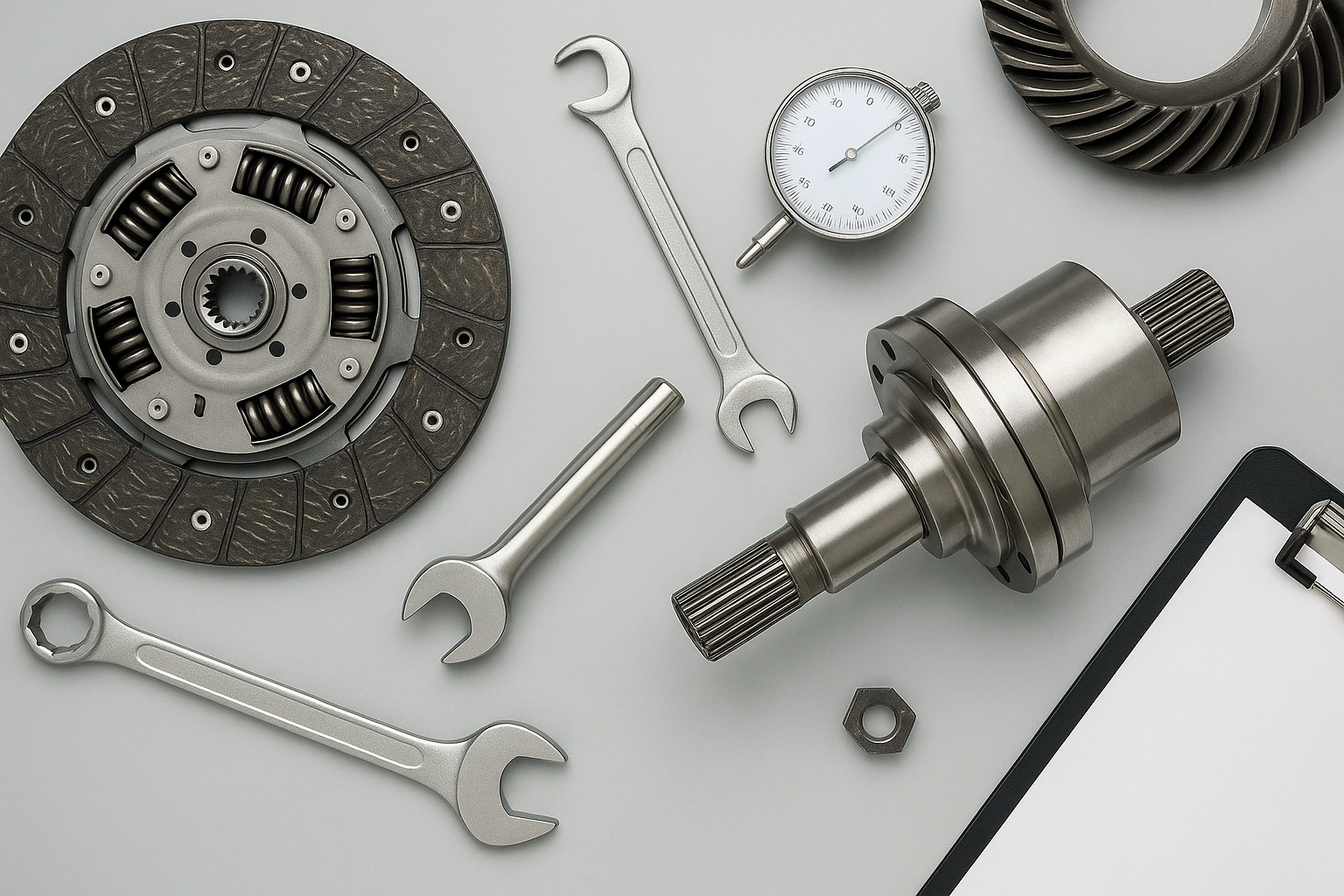SAE J1723 Transmission Clutch Friction Test
The SAE J1723 Transmission Clutch Friction Test is a critical procedure designed to evaluate and ensure the performance of transmission clutches, which are essential components in automotive powertrains. This test adheres to the standards set by the Society of Automotive Engineers (SAE) and aims to provide reliable data on clutch friction behavior under various operating conditions.
The primary purpose of this test is to assess the clutch's ability to transmit torque efficiently while also ensuring smooth engagement and disengagement without causing undue wear or damage. The SAE J1723 specifies a series of tests that simulate real-world driving scenarios, including cold starts, warm-up phases, and high-performance demands.
For the test to be accurate, it is essential to follow precise procedures outlined in the standard. These include selecting appropriate specimen materials based on the intended application, preparing specimens according to SAE J1723 specifications, calibrating the testing equipment, and ensuring a controlled environment that mimics real-world conditions as closely as possible.
The test protocol involves measuring various parameters such as torque, slip speed, heat generation, and wear rates. These measurements are critical for understanding the clutch's performance characteristics under different operating conditions. The results of these tests provide valuable insights into the clutch's durability, efficiency, and potential lifespan in an automotive environment.
Moreover, the SAE J1723 test helps manufacturers identify any design flaws or material issues that could lead to premature failure or reduced performance. This information is crucial for improving product quality and ensuring compliance with industry standards.
The testing process also involves monitoring the clutch's behavior during both normal operation and extreme conditions. This comprehensive approach ensures that the clutch can handle a wide range of driving situations, from city traffic to high-speed highway driving.
In addition to its technical aspects, this test is vital for automotive quality managers, compliance officers, R&D engineers, and procurement personnel who are responsible for ensuring the reliability and performance of transmission clutches. By adhering to the SAE J1723 standard, these professionals can make informed decisions about design improvements, material selection, and production processes.
The test results play a significant role in the overall quality assurance process for automotive components. They help identify areas where further development is needed and provide benchmarks against which future products can be measured.
Industry Applications
| Application | Description |
|---|---|
| Automotive Testing | Evaluating the performance of transmission clutches in various driving conditions. |
| R&D and Engineering | Assisting in the development and optimization of clutch designs. |
| Supplier Quality Assurance | Ensuring that external suppliers meet strict quality standards for their products. |
| Regulatory Compliance | Meeting international standards to ensure product safety and performance. |
| Field Service Support | Diagnosing and resolving issues related to clutch functionality in the field. |
The SAE J1723 Transmission Clutch Friction Test is widely used across various industries, particularly in automotive manufacturing. It helps ensure that transmission clutches perform optimally under different driving conditions, which is crucial for maintaining vehicle safety and efficiency.
In the context of R&D and engineering, this test provides valuable data that can be used to refine clutch designs, optimize materials, and improve overall performance. For supplier quality assurance, it acts as a tool to verify that components meet strict performance criteria before being integrated into final products.
For regulatory compliance, adherence to the SAE J1723 standard ensures that automotive components comply with international safety standards, thereby minimizing risks associated with non-compliance.
In field service support, this test can help diagnose and address issues related to clutch functionality. By understanding how clutches behave under various conditions, technicians can identify potential problems early on and implement corrective measures promptly.
Eurolab Advantages
- Comprehensive Testing Capabilities: Eurolab offers a full suite of testing services that cater to the needs of the automotive industry, including transmission clutch friction tests according to SAE J1723.
- State-of-the-Art Facilities: Our laboratories are equipped with cutting-edge equipment and technology, ensuring precise and reliable test results.
- Experienced Professionals: Eurolab's team of experts has extensive experience in conducting these types of tests, providing clients with accurate and insightful reports.
- Prompt Reporting: Clients receive detailed reports within a specified timeframe, allowing for quick decision-making processes.
- Comprehensive Data Analysis: Eurolab provides not only raw test data but also in-depth analysis to help clients understand the implications of their test results.
- Customized Solutions: We offer tailored testing programs that meet specific client requirements, ensuring comprehensive coverage of all relevant parameters.
Eurolab's commitment to excellence and innovation sets us apart as a premier choice for automotive testing services. With our advanced facilities and experienced team, we provide clients with the highest quality testing solutions available in the market today.
Environmental and Sustainability Contributions
- Eco-Friendly Materials: Eurolab uses environmentally friendly materials whenever possible to minimize waste and reduce environmental impact.
- Energy-Efficient Operations: Our laboratories are designed with energy efficiency in mind, using advanced technologies that consume less power without compromising on performance.
- Sustainable Waste Management: All waste generated during testing is managed sustainably, ensuring minimal environmental footprint.
- Water Conservation: We employ water-saving measures to reduce consumption and minimize the impact on local ecosystems.
- Carbon Footprint Reduction: Eurolab actively seeks ways to reduce its carbon footprint through various initiatives such as optimizing energy use and promoting sustainable practices among staff.
- Educational Outreach: We engage in community outreach programs aimed at educating the public about the importance of sustainable practices, particularly within the automotive sector.
At Eurolab, we understand our responsibility to contribute positively to environmental sustainability. By integrating these principles into our operations and services, we aim to make a difference not only for ourselves but also for future generations.





